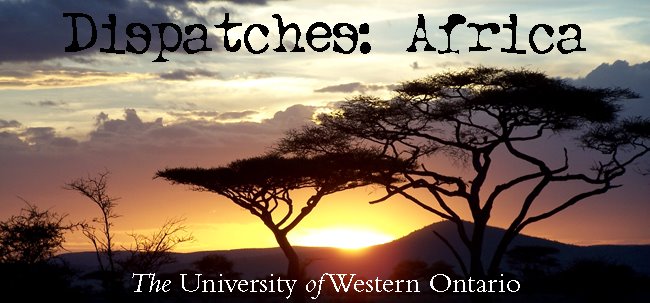
Kitabi, Rwanda – At any one time here, the lyrical tones of a variety of languages are carried on the breeze. With everyone talking on a mobile phone, it can be a real symphony.
Many educated Rwandans are at least bilingual and often speak three or four languages, at least passably. Persistent chatter on the street is generally in Kinyarwanda, but the government implemented a policy this past year that made English the working language. Meetings, however, often dissolve into the national tongue.
I imagine the transition will be interesting – and likely challenging – in the short term, given that the policy is not being phased in. It’s already in place. Imagine waking up one morning and suddenly finding out that all of your work had to be done in a different language – one you understood little of. All of a sudden, school curricula are in English. Signs, advertisements, newspapers, overhauled.
Though it may handicap the nation in the near future, the President believes the change will help Rwanda better position itself on the global stage in the long run. English is also central to the country’s desire to join the Commonwealth.
Kiswahili – the language of much of East and Central Africa – has now also been made mandatory in schools.
Given France’s extensive historical involvement in the country, many Rwandans also speak French (though there are areas in which you may be thought less of if you do because of disgust with the former colonial power). Rwanda was once part of ‘La Francophonie’, the association of French-speaking nations, but diplomatic relations have chilled with France because of its colonial past and its role in the genocide.
On an interesting note, Kinyarwanda is blessed with a couple idiosyncrasies that can be somewhat confusing if you’re not prepared for them. For reasons I do not understand, the ‘k’ sound is often pronounced as “ch” and an ‘l’ can be pronounced as ‘r’. As an example, Kigali (where I’m headed back to tomorrow) is often pronounced “Chigari”. To add another wrinkle, ‘b’ can be pronounced as ‘v’, leaving the oral form of Kitabi as “Chitavi”.
Confused yet?
Many educated Rwandans are at least bilingual and often speak three or four languages, at least passably. Persistent chatter on the street is generally in Kinyarwanda, but the government implemented a policy this past year that made English the working language. Meetings, however, often dissolve into the national tongue.
I imagine the transition will be interesting – and likely challenging – in the short term, given that the policy is not being phased in. It’s already in place. Imagine waking up one morning and suddenly finding out that all of your work had to be done in a different language – one you understood little of. All of a sudden, school curricula are in English. Signs, advertisements, newspapers, overhauled.
Though it may handicap the nation in the near future, the President believes the change will help Rwanda better position itself on the global stage in the long run. English is also central to the country’s desire to join the Commonwealth.
Kiswahili – the language of much of East and Central Africa – has now also been made mandatory in schools.
Given France’s extensive historical involvement in the country, many Rwandans also speak French (though there are areas in which you may be thought less of if you do because of disgust with the former colonial power). Rwanda was once part of ‘La Francophonie’, the association of French-speaking nations, but diplomatic relations have chilled with France because of its colonial past and its role in the genocide.
On an interesting note, Kinyarwanda is blessed with a couple idiosyncrasies that can be somewhat confusing if you’re not prepared for them. For reasons I do not understand, the ‘k’ sound is often pronounced as “ch” and an ‘l’ can be pronounced as ‘r’. As an example, Kigali (where I’m headed back to tomorrow) is often pronounced “Chigari”. To add another wrinkle, ‘b’ can be pronounced as ‘v’, leaving the oral form of Kitabi as “Chitavi”.
Confused yet?


No comments:
Post a Comment